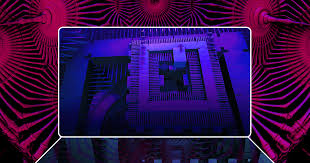
Breaking News
 Coming Soon . . . The 9th Annual Fake News Awards!
Coming Soon . . . The 9th Annual Fake News Awards!
 BANK OF AMERICA SURRENDERS: BofA Just Issued a $309 Silver Alert (Physical Premiums Exploding)
BANK OF AMERICA SURRENDERS: BofA Just Issued a $309 Silver Alert (Physical Premiums Exploding)
 Steve Witkoff says they are close to finishing "a prosperity agreement" for Ukraine,...
Steve Witkoff says they are close to finishing "a prosperity agreement" for Ukraine,...
Top Tech News
 The First Production All-Solid-State Battery Is Here, And It Promises 5-Minute Charging
The First Production All-Solid-State Battery Is Here, And It Promises 5-Minute Charging
 See inside the tech-topia cities billionaires are betting big on developing...
See inside the tech-topia cities billionaires are betting big on developing...
 Storage doesn't get much cheaper than this
Storage doesn't get much cheaper than this
 Laser weapons go mobile on US Army small vehicles
Laser weapons go mobile on US Army small vehicles
 EngineAI T800: Born to Disrupt! #EngineAI #robotics #newtechnology #newproduct
EngineAI T800: Born to Disrupt! #EngineAI #robotics #newtechnology #newproduct
 This Silicon Anode Breakthrough Could Mark A Turning Point For EV Batteries [Update]
This Silicon Anode Breakthrough Could Mark A Turning Point For EV Batteries [Update]
 Travel gadget promises to dry and iron your clothes – totally hands-free
Travel gadget promises to dry and iron your clothes – totally hands-free
 Perfect Aircrete, Kitchen Ingredients.
Perfect Aircrete, Kitchen Ingredients.
 Futuristic pixel-raising display lets you feel what's onscreen
Futuristic pixel-raising display lets you feel what's onscreen
 Cutting-Edge Facility Generates Pure Water and Hydrogen Fuel from Seawater for Mere Pennies
Cutting-Edge Facility Generates Pure Water and Hydrogen Fuel from Seawater for Mere Pennies
Quantum Circuits Opens Lab for Modular Quantum Computers

QCI's unique software platform harnesses the power of our quantum hardware. We are building a full stack of flexible software to run novel and complex algorithms, exploiting the full potential of quantum computation.
Delivering Quantum as a Service.
QCI opened its New Haven development and testing facility for quantum computing.
The facility includes 6,000 square feet of state-of-the-art laboratories and in-house manufacturing. It will house more than 20 scientists and engineers.
Yale University researchers have demonstrated one of the key steps in building the architecture for modular quantum computers: the "teleportation" of a quantum gate between two qubits, on demand.
The key principle behind this new work is quantum teleportation, a unique feature of quantum mechanics that has previously been used to transmit unknown quantum states between two parties without physically sending the state itself. Using a theoretical protocol developed in the 1990s, Yale researchers experimentally demonstrated a quantum operation, or "gate," without relying on any direct interaction. Gates are necessary for quantum computation that relies on networks of separate quantum systems — an architecture that many researchers say can offset the errors that are inherent in quantum computing processors.

 The Covid Index
The Covid Index

